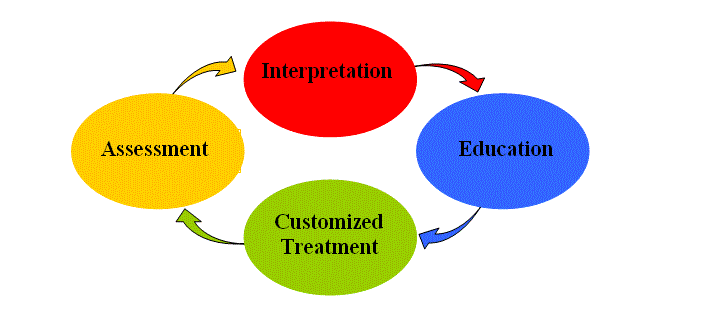Archive for the ‘For Doctors’ Category
Want another boost? Play a video game!
My last blog talked about how reading is generally good for you. Even reading fiction. But what about playing video games?
An article in Reader’s Digest summarizes some of the beneficial effects video games can have on your health. Unfortunately, it’s titled, “8 Reasons Video Games Might Just Be Better for You Than Books,” and many of the studies don’t actually compare playing video games to reading books. I’ll chalk that up to Reader’s Digest trying to create a click-bait title and excusing itself by using the “might just” phrasing. (The click bait worked for me; I did click on it, after all.)
While I don’t have access to all of the studies cited and can’t comment on their validity, many of their findings make sense. Often for the same reasons reading fiction can be good for your mental health.
In case you need a reason to justify taking a break and playing a video game, check out the Reader’s Digest article below.
Just keep in mind a few things:
- For optimal health benefits, use common sense and moderation. Spending too much time playing games can cause problems for some people, including eye strain, tendinitis, and consequences resulting from shirking certain responsibilities.
- Some benefits in the article call for specific types of games, such as ones that are “visual-heavy” like Tetris.
- Your mileage may vary. If you find a game frustrates you rather than makes you happy, try other games.
Here’s the article! Enjoy!
https://www.rd.com/health/wellness/health-benefits-of-video-games/
And in case you’re wondering whether reading fiction is good for you, here’s my blog about an article discussing the health benefits of reading.
A Link Between Alzheimer’s Disease and Sugar?
As you begin working on your goals for the new year, consider making healthy changes to your diet. For many people in America, reducing sugar and simple carbohydrates is a good idea. Here’s another reason why. Studies suggest there may be a link between Alzheimer’s disease and the way our bodies process sugar and simple carbohydrates. For some motivation to eat healthier, take a look at this article:
If you are serious about changing your diet, consider these helpful tips:
1. Instead of trying to cut something completely out of your diet, replace undesired components with desired ones. For example, instead of avoiding pasta, try eating “pasta” sliced from fresh vegetables, like curls of squash.
2. Experiment with “paleo” recipes to substitute good fats for carbs.
3. Make small changes that you can continue for the long term. Attempts to make radical changes to your diet are more likely to only last a short time.
Happy new year! I hope the changes you make help you feel your personal best!
Can Hearing Loss Be an Early Indication of Alzheimer’s Disease?
Early detection of Alzheimer’s disease is vital to getting early treatment. This is an interesting study that found a correlation between hearing loss and Mild Cognitive Impairment (MCI), which can be a precursor of Alzheimer’s disease.
https://www.alz.org/aaic/releases_2017/AAIC17-Mon-briefing-risk-factor.asp
For Physicians: Screening Measures vs. Neuropsychological Testing Referrals
Question: As a physician, I use an in-house test for Alzheimer’s disease. Why would I need to refer a patient for neuropsychological testing?
Many physicians use the Mini Mental Status Exam (MMSE) or similar brief screening measures when a patient or patient’s family members bring up memory concerns. However, physicians may consider referring a patient to neuropsychological testing for many reasons, including the following:
- The MMSE test is not very sensitive, missing between 23 and 55 percent of Mild Cognitive Impairment, which can be an early indicator of Alzheimer’s disease or other neurodegenerative disorders
- Read more
Neuropsychology and Early Diagnosis of Alzheimer’s Disease and other Neurodegenerative Disorders
New diagnostic techniques have revealed pathological changes in the brain that occur early in the process of Alzheimer’s disease and other neurodegenerative disorders. Researchers suggest that these pathological changes can precede noticeable clinical symptoms (memory loss, personality changes) by as many as ten years (Sperling et al., 2011). Thus, by the time even subtle symptoms are present, these processes may have been taking place for years, so early diagnosis is crucial.
What is Neuropsychology and What Can It Do for Me?
Neuropsychology is the study of the relationship between brain function and behavior. Neuropsychological evaluations begin with assessment, where you do tasks that test the different key areas of your brain. After we interpret the tests, we get to know your brain functioning in detail and can figure out what parts of the brain are working fine and what parts are not. We use that information to make individually tailored recommendations which help make your treatments work better by teaching you how to rely more on the parts of your brain that are still functioning properly.
